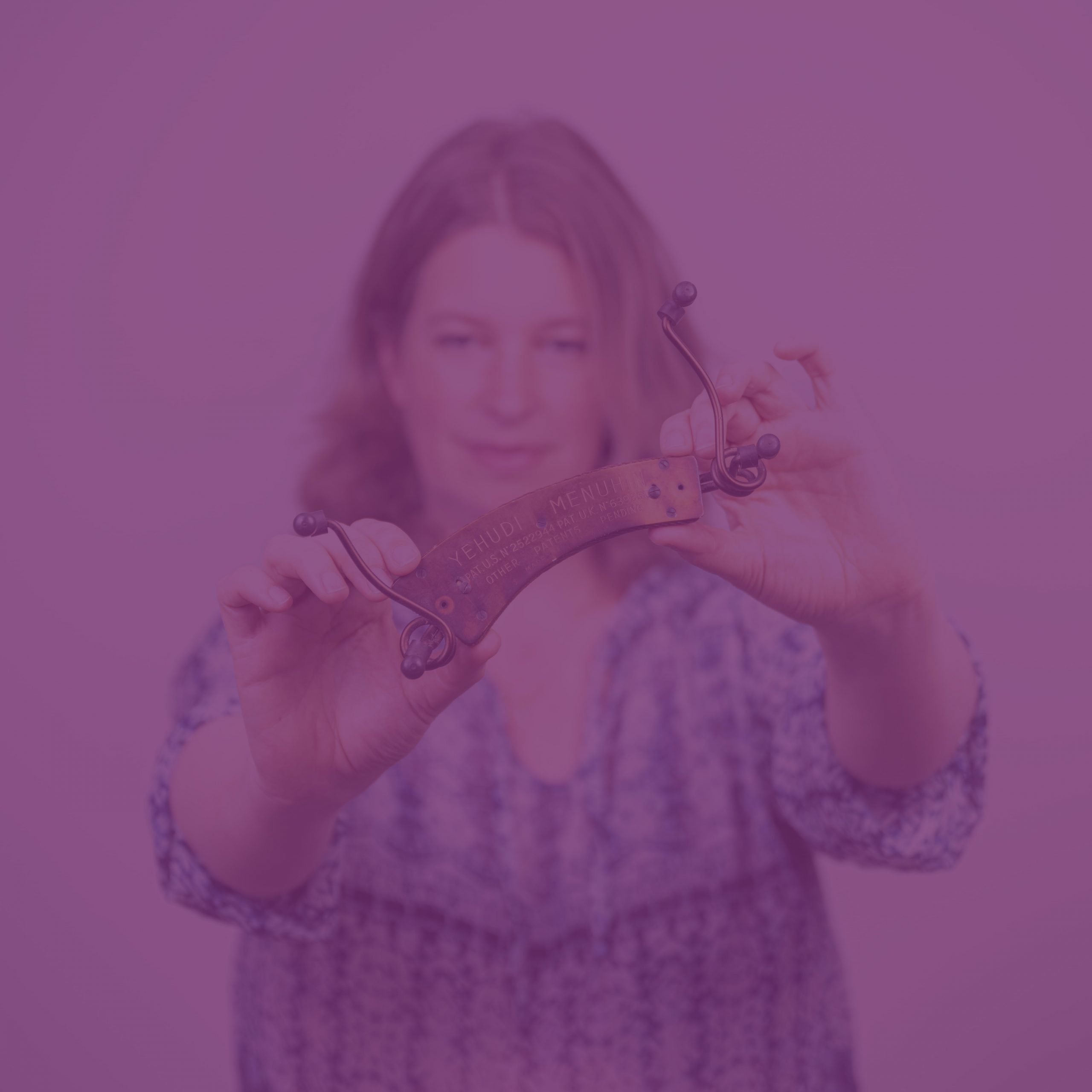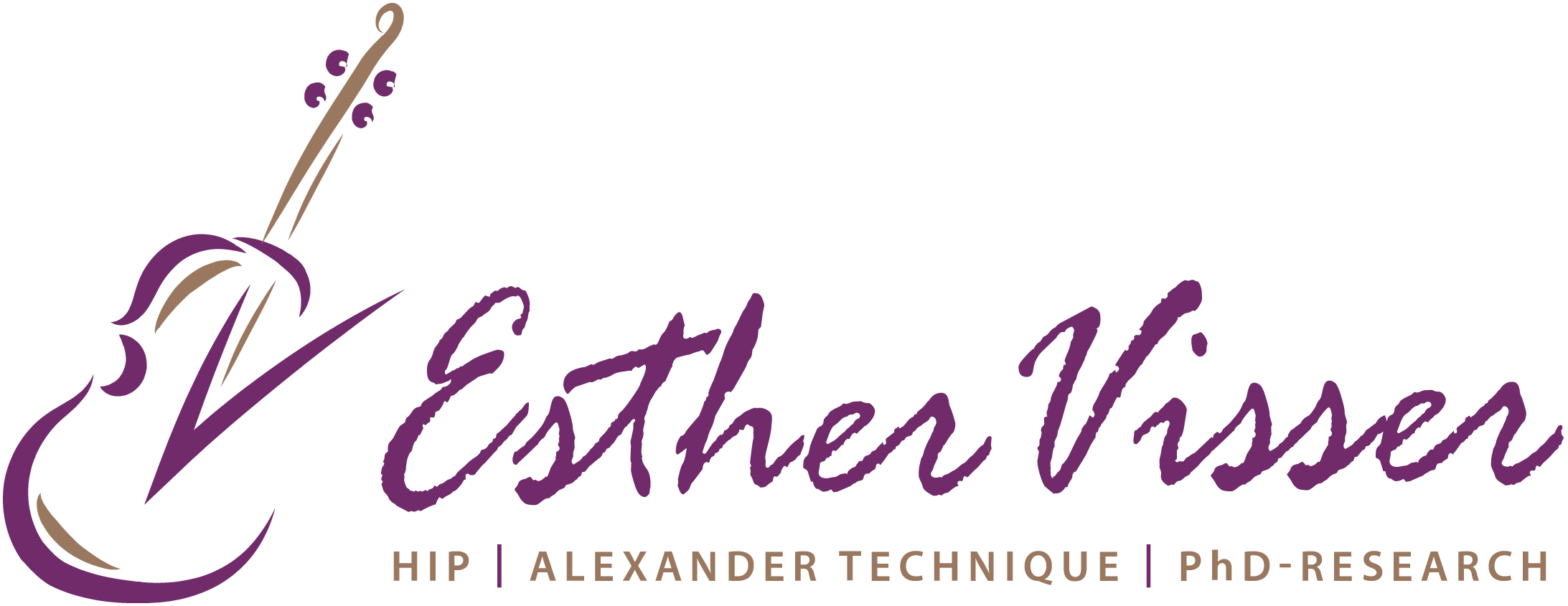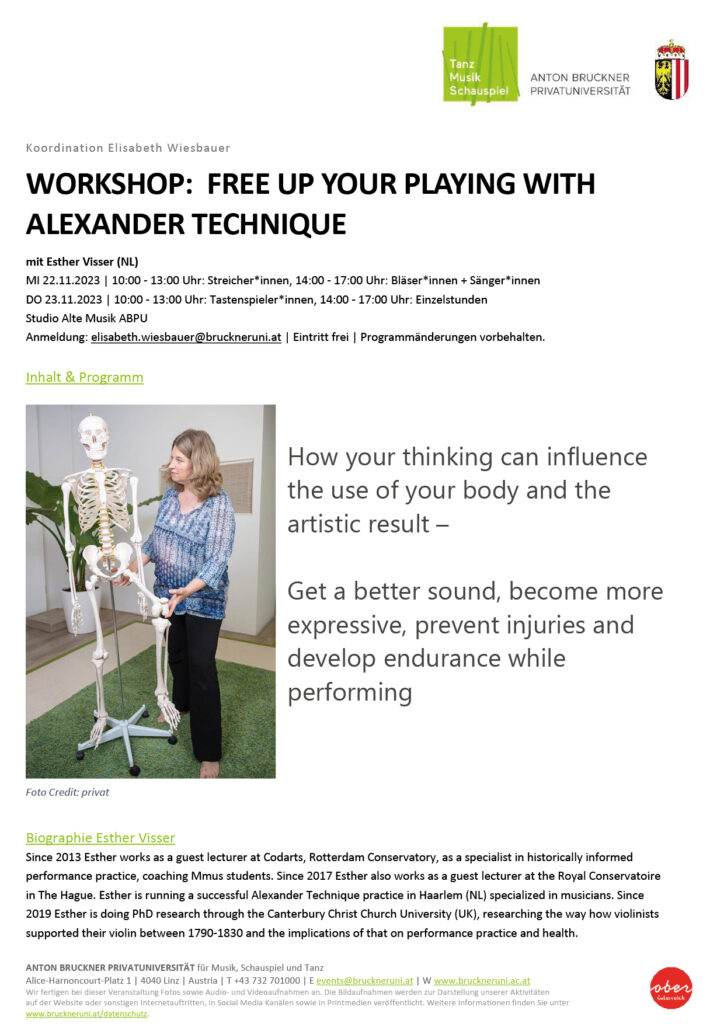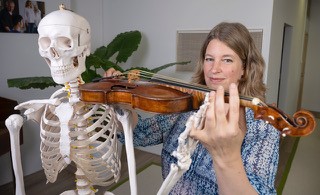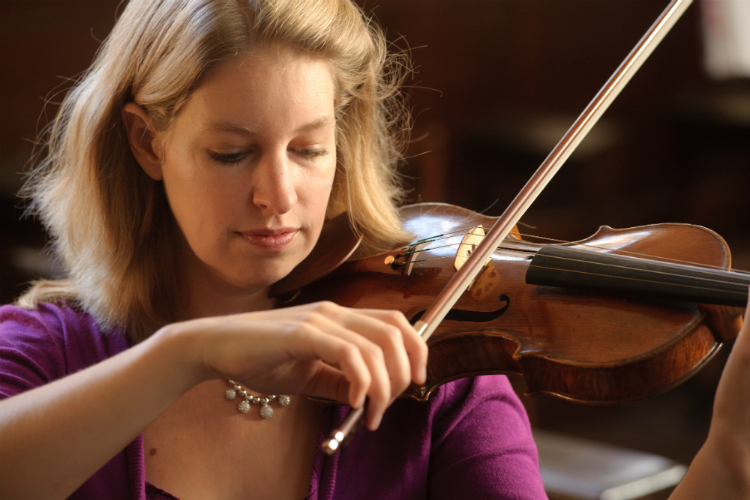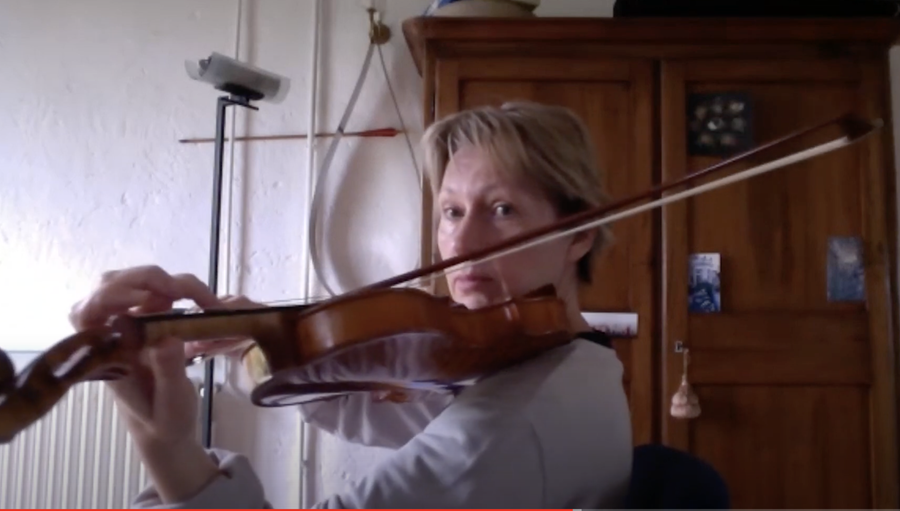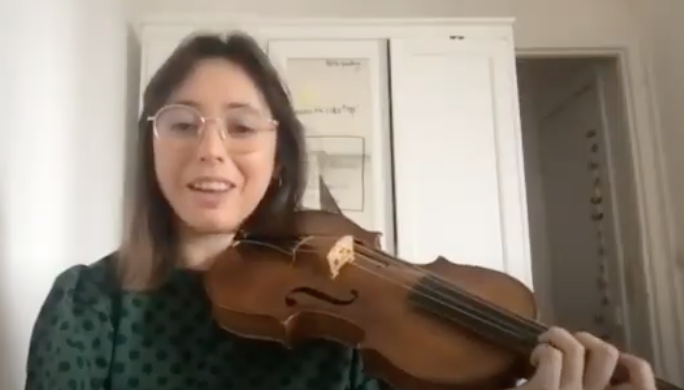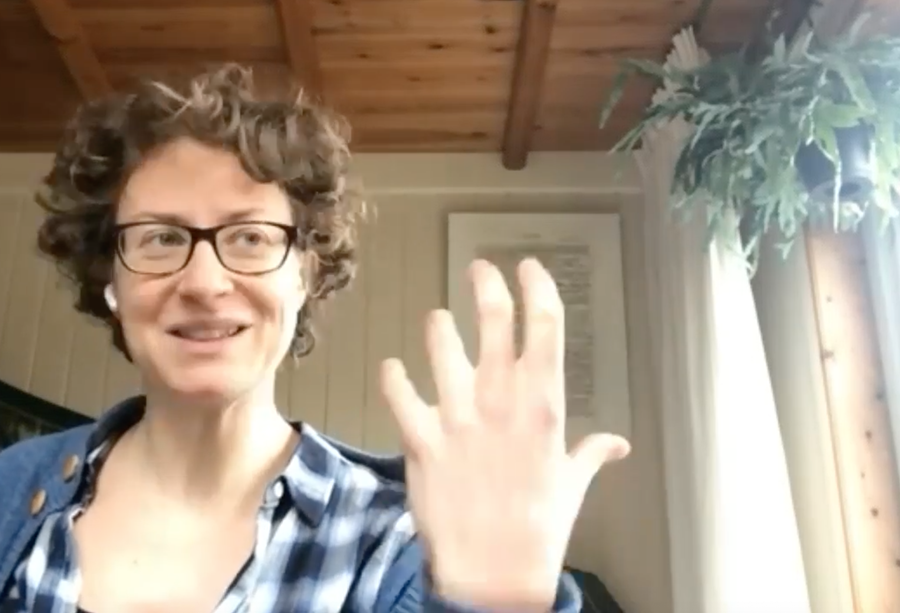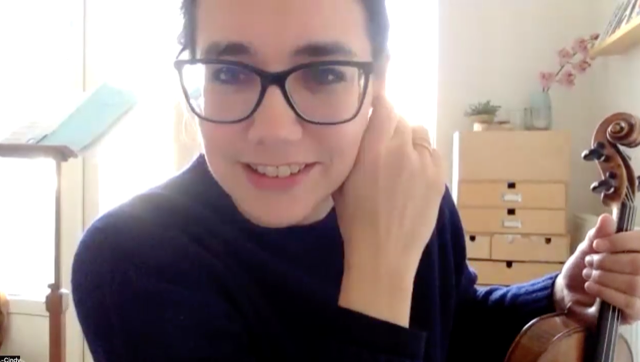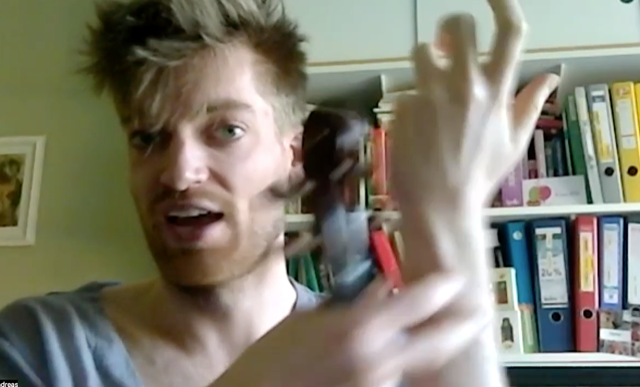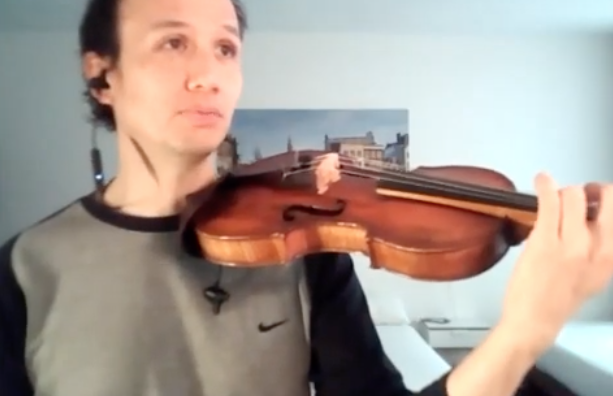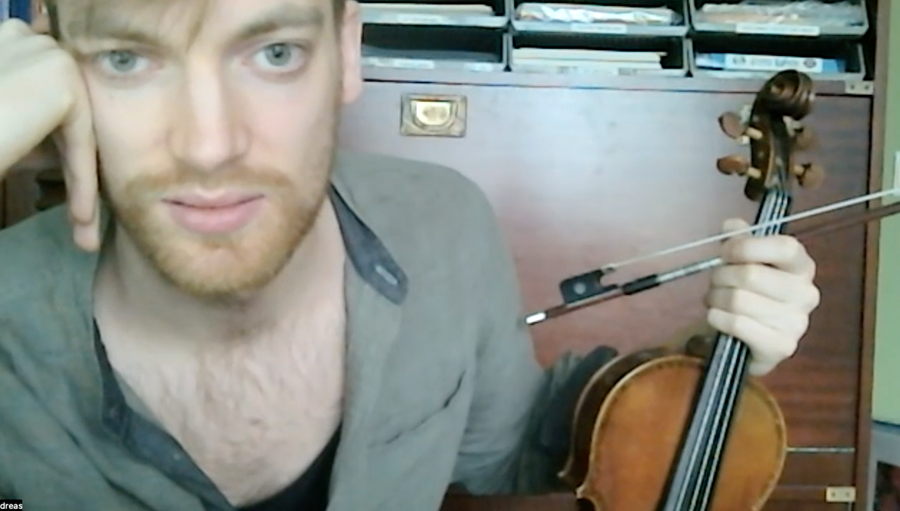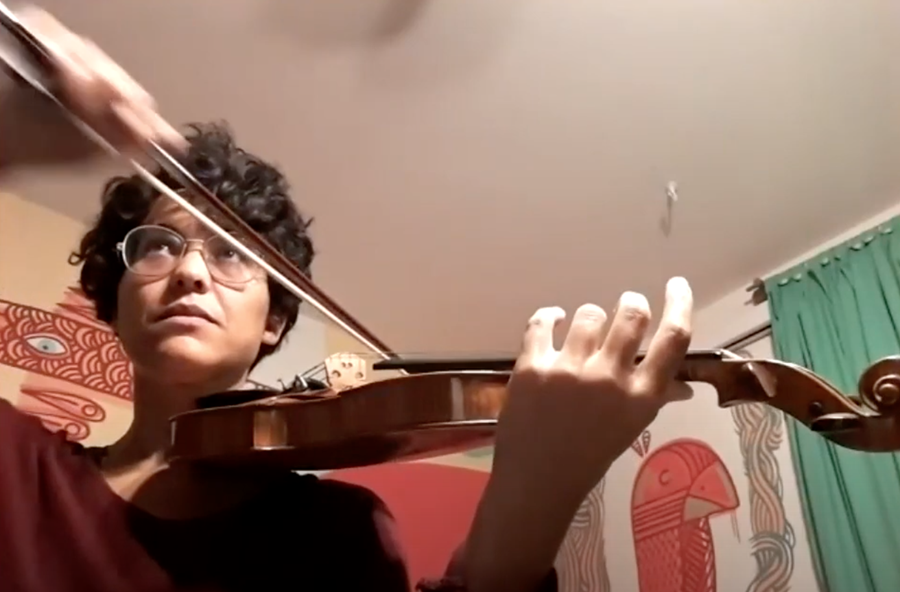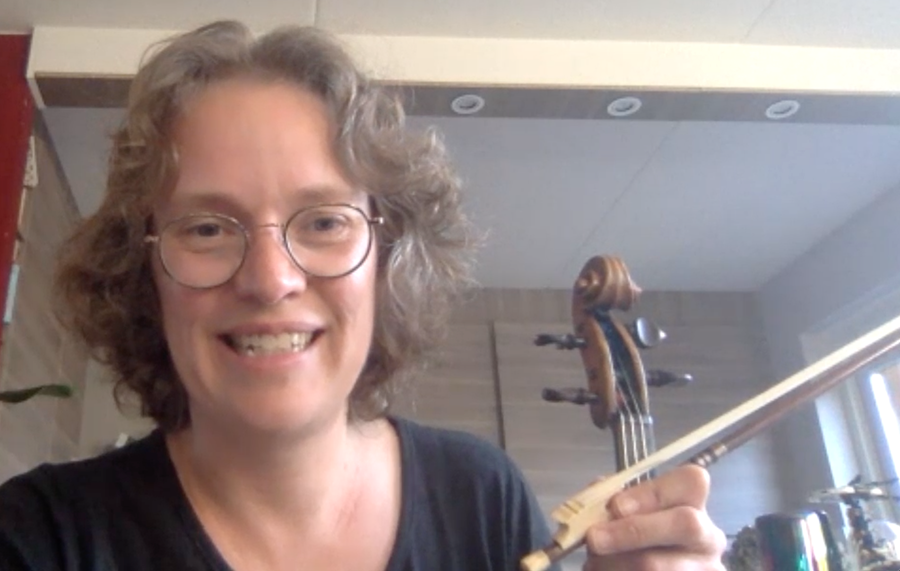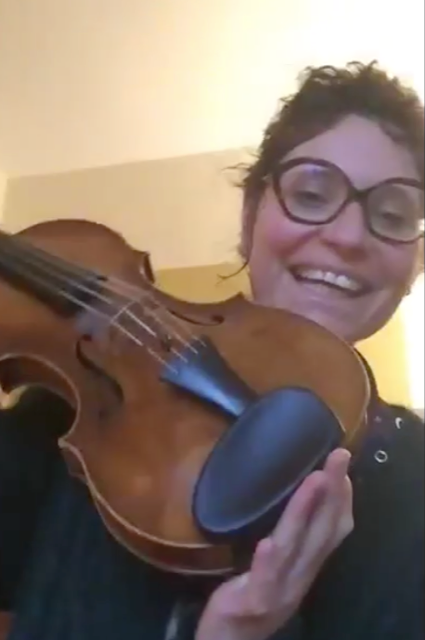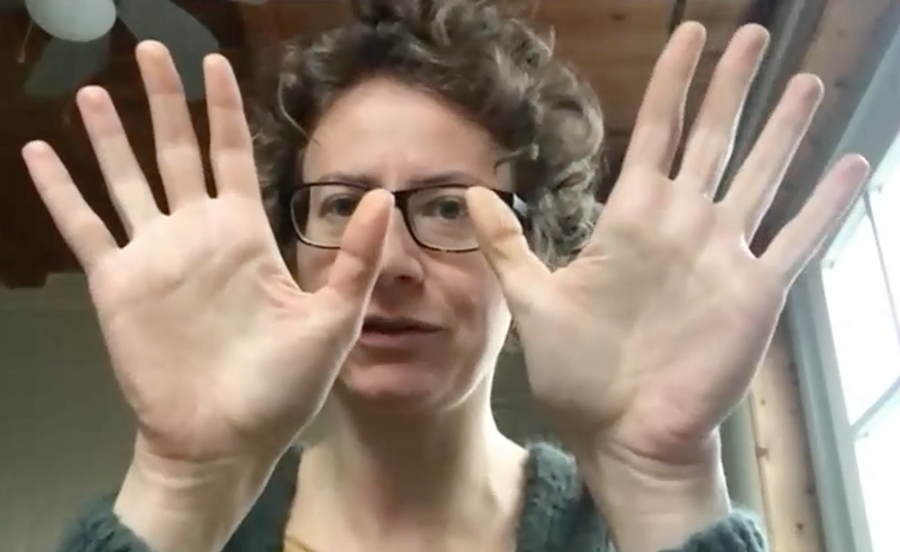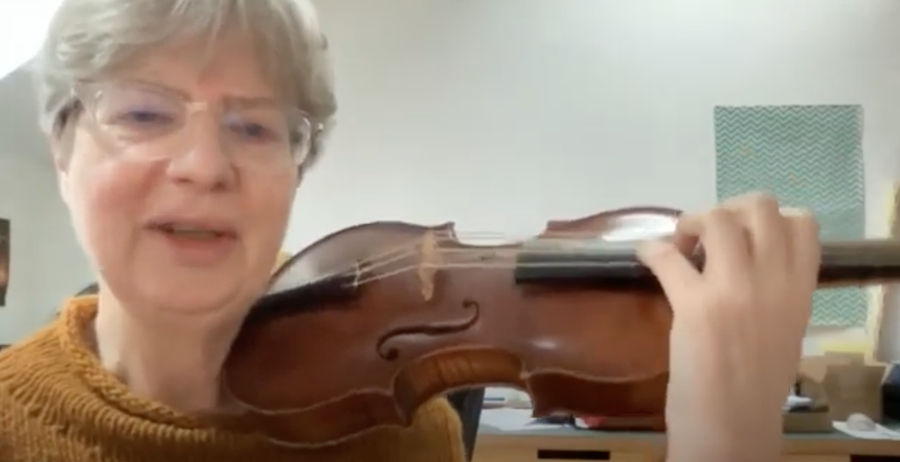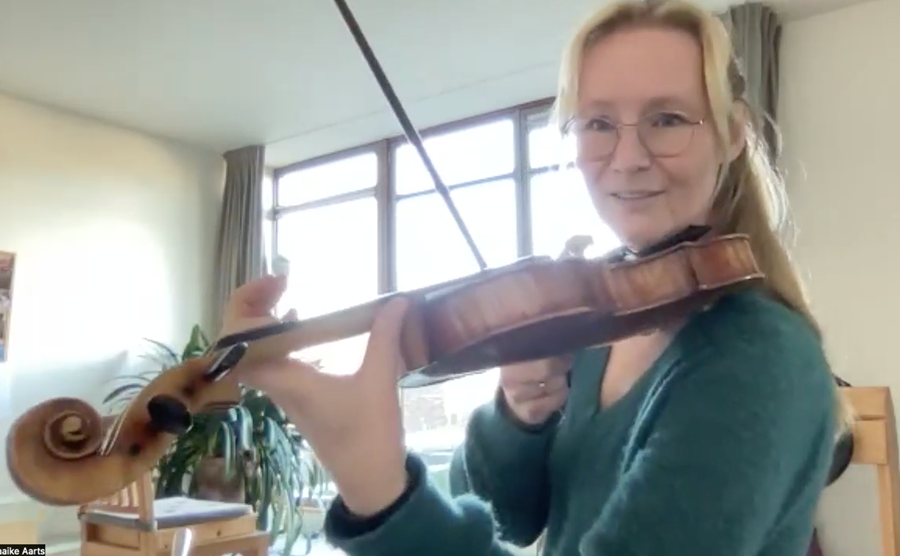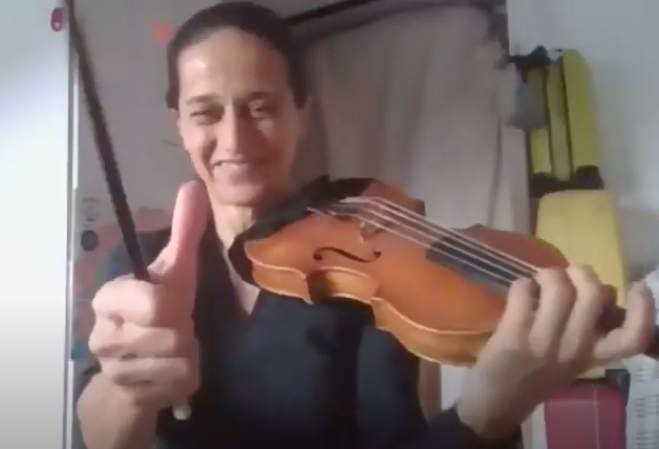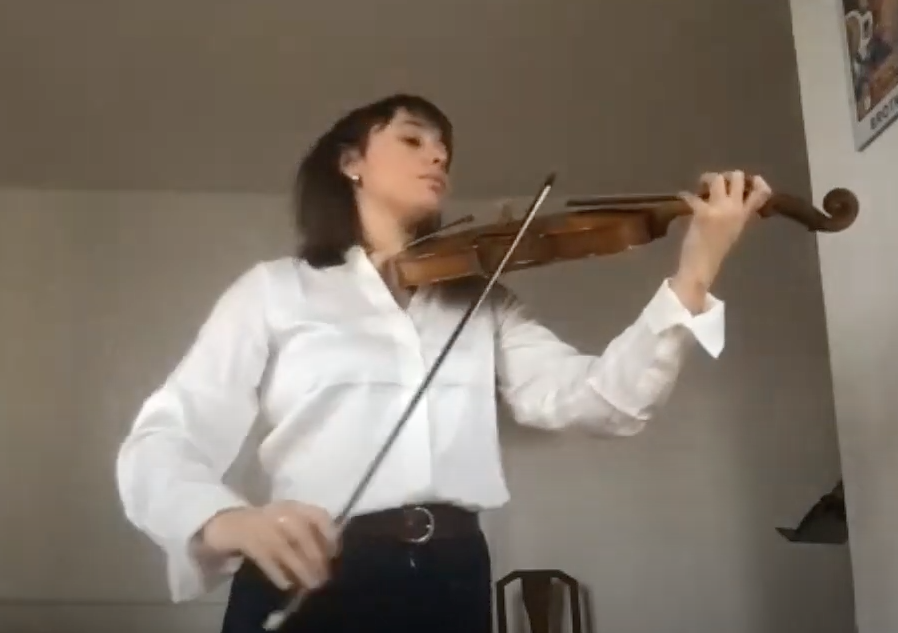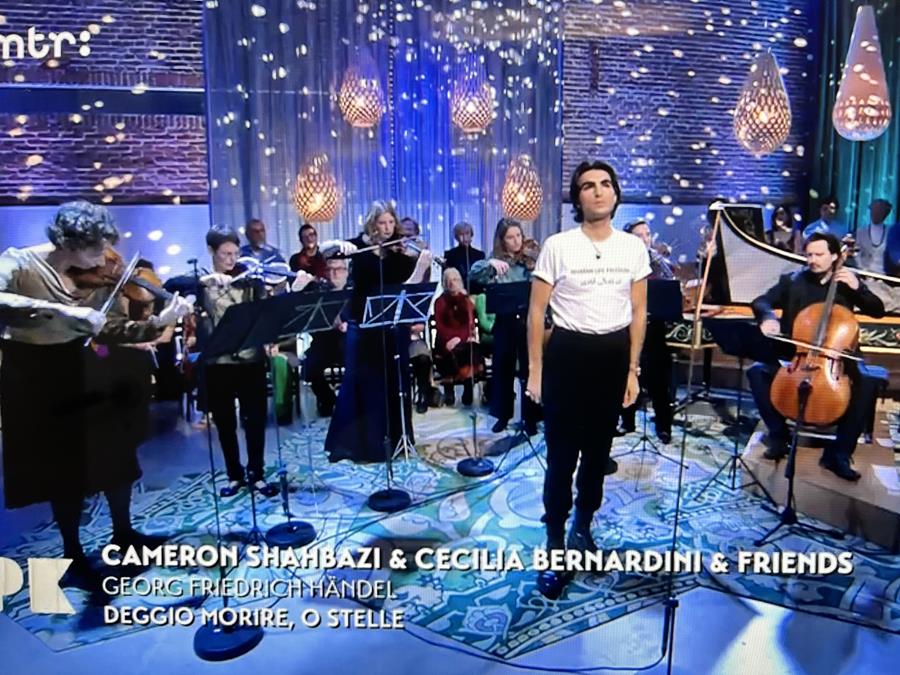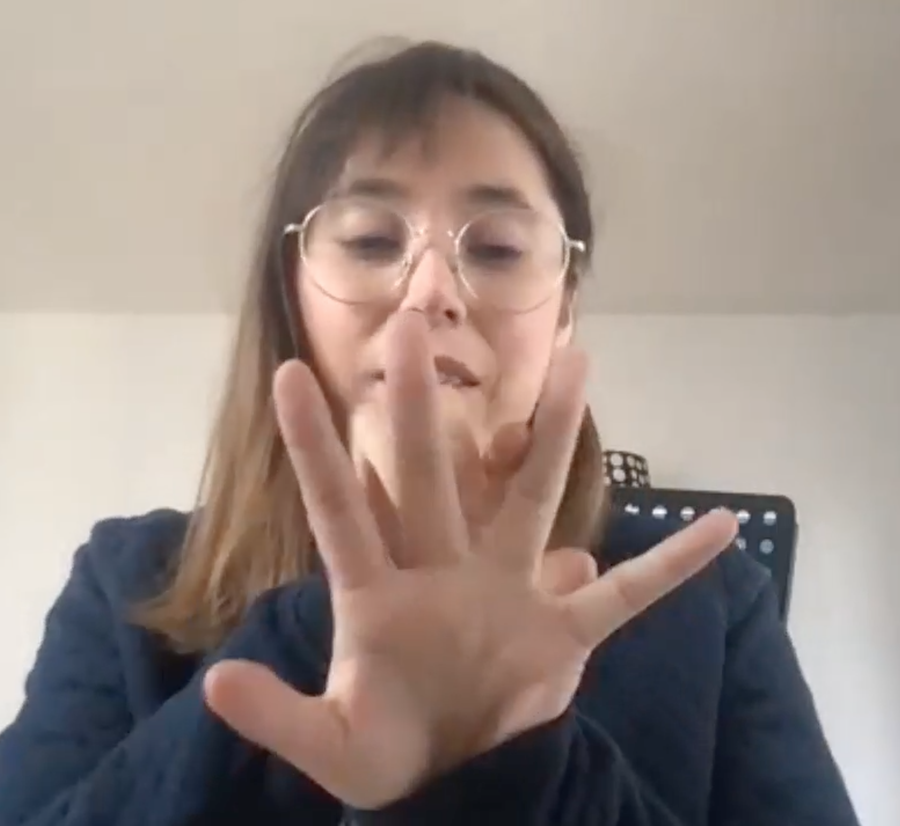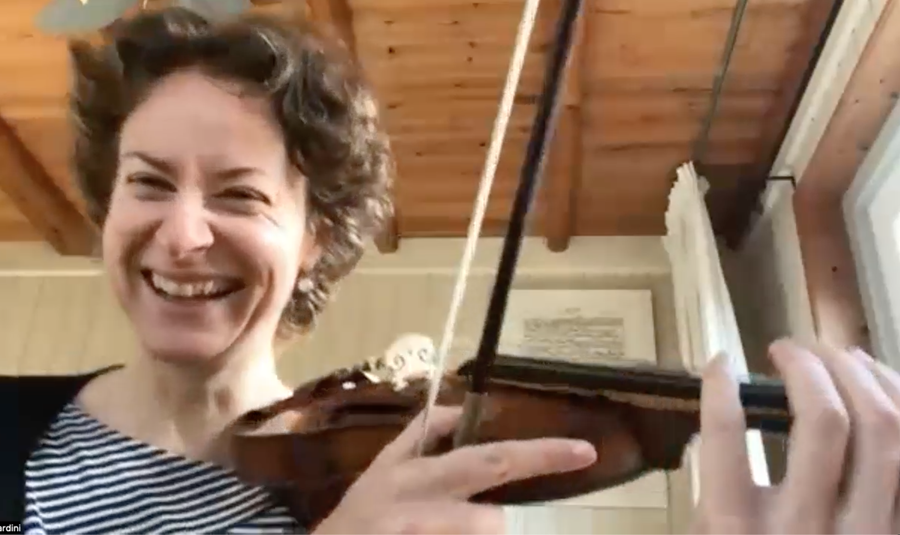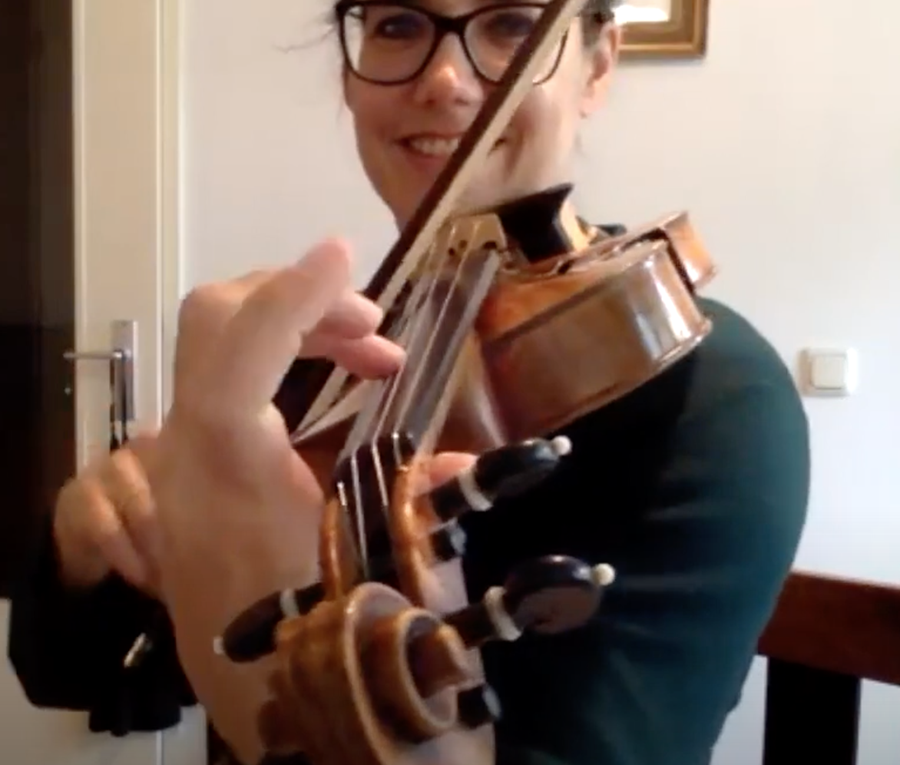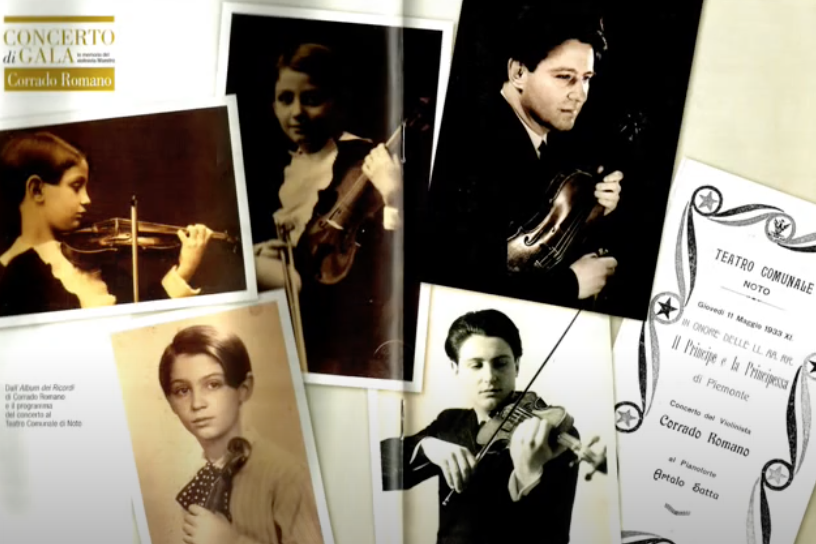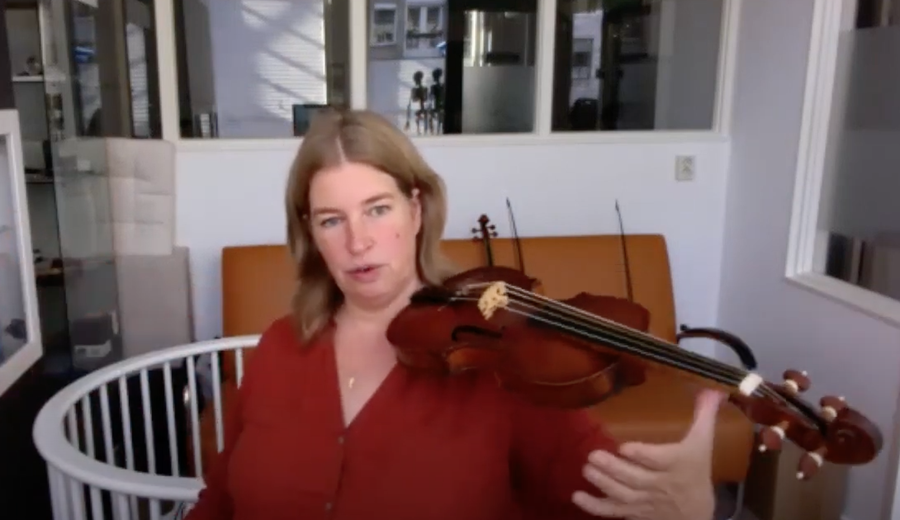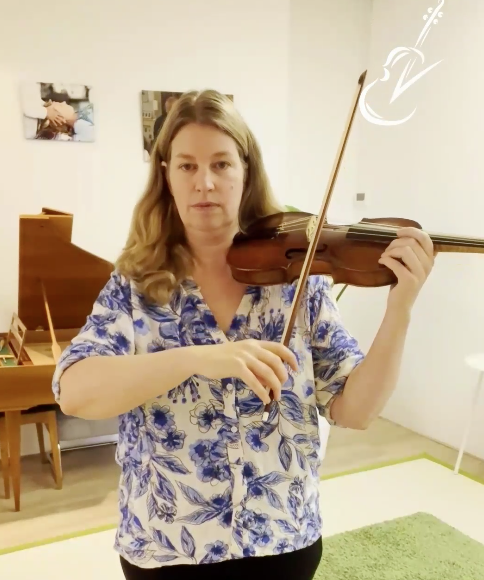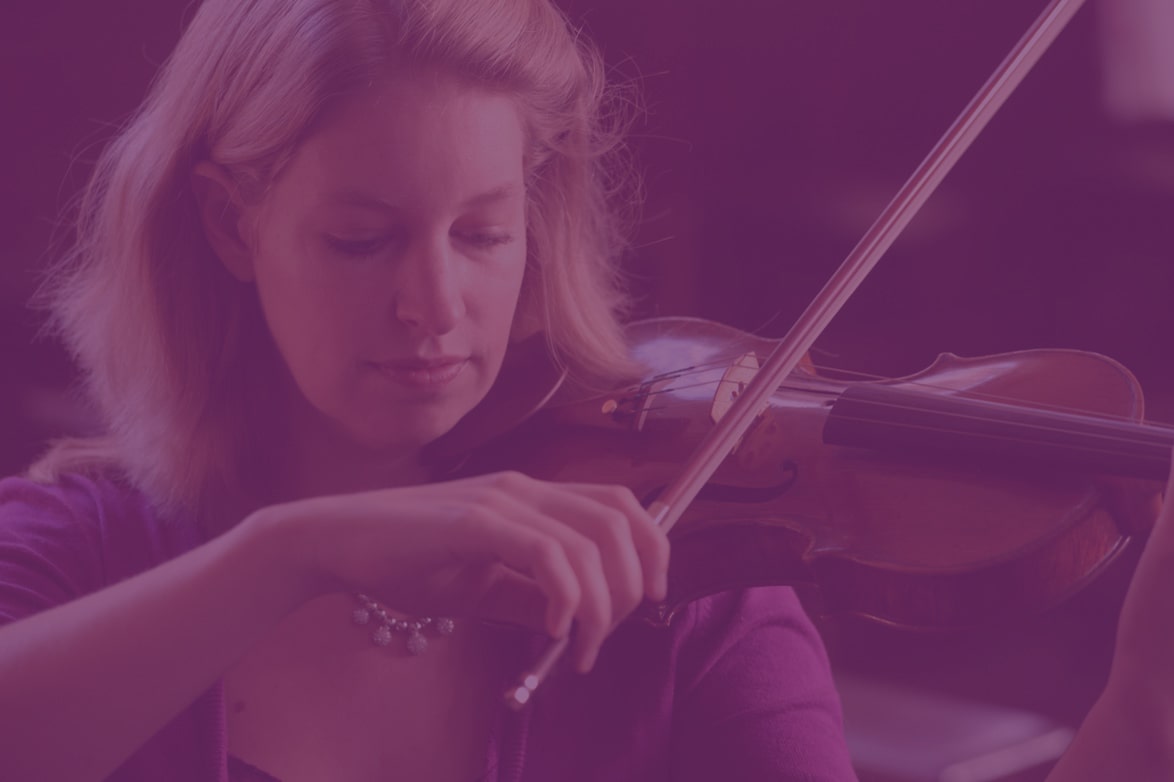
Participate
Participate in experiment
Hi! Participating will mean following a programme of 12 video lessons, meant for professional violinists / violists or music students.
It would be great if you could join! The only requirement is that you are open and curious to learn new ways of supporting the instrument.
You can keep your usual way of playing going during the experiment. Participation will require a minimum of 10 minutes per day to develop a new way of balancing, after which you can do your usual practicing. After the experiment you can decide if you want to adopt this different way into your playing or not.
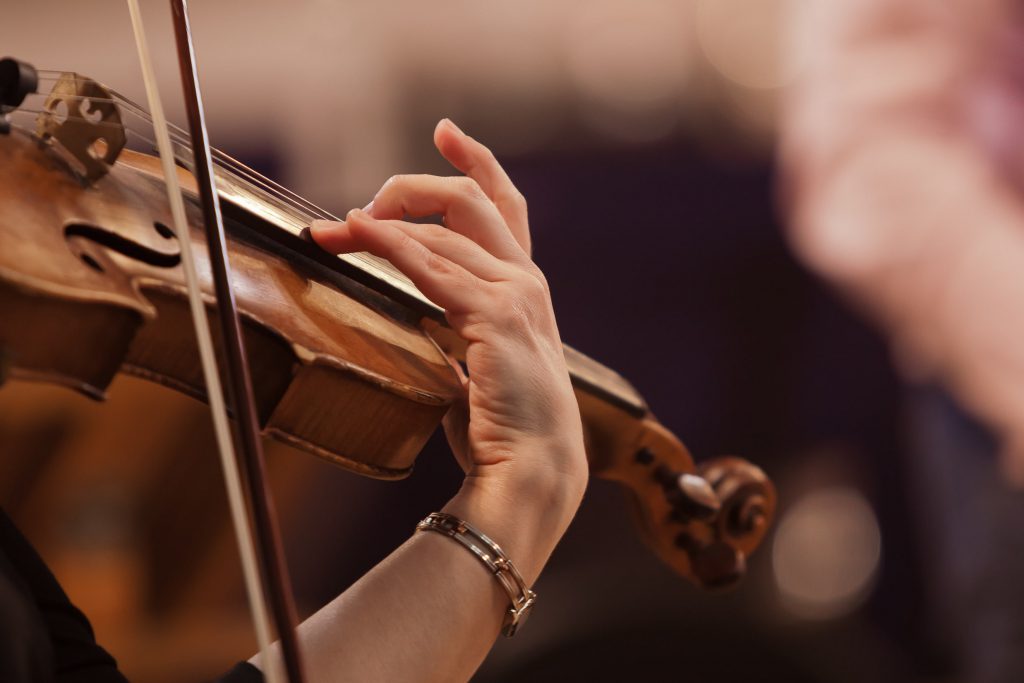
Content of the programme
The program consists of 12 video lessons, divided in 3 blocks:
- In the first 4 lessons we will work on ensuring that your collarbone forms a healthy basis to support your violin or viola. This has much to do with the use of your body, the balance on your feet and finding a comfortable place for your violin to rest on the body. After that, we will work on balancing the instrument with your left hand.
- The second 4 lessons willl be about violin technique. When we support the violin with your left hand, how do we do that without it being tiring? In what way do we use the left thumb? How do we make position shifts and how do we do glissandi? What does this balance mean for the bow?
- In the last 4 lessons we will apply this all to playing a part of a Paganini caprice, building it up very slowly. So we first start with the first 4 bars, next lesson again 4 bars etc, until you play half a page at the end of the experiment. You can download the music sheet from the login page. Fingerings and use of the left hand will be explained very carefully, in order to proof that with this new balance you even can play pieces like Paganini.
My hypothesis is that this way of playing will feel easier than when you place back your chin rest or shoulder rest.
How will it work?
After registration you will receive a password for the login page on top of this website. On this ‘hidden’ page you will find:
- entrance survey
- links to the 12 video lessons
- link to upload your own videos
- file to download the sheet music we use during the last 4 lessons
- exit survey
Ideally, you would take one video lesson per week and practice the assignment I give in the end of every lesson for a couple of days. For example: you watch the video on Monday, then practice every day 10 minutes, and on Friday you make a video recording on your phone (a couple of minutes, not much) showing me what you did, through the link o the website. You will also receive email reminders on Monday and Friday with the link to your lesson and the link to upload your video. It will be very easy.
If you find the program too easy or too slow, you also can do it faster. In that case, you use the video lesson links at the login page (all 12 lessons are there), just upload the skill I am asking for and continue to the next lesson. But I would suggest to take your time and I think one lesson per week will be a nice tempo.
Entrance and exit survey
For the research, it is very important that you fill out an entrance survey (10 minutes) before you start the experiment, and also fill out an exit survey (10 minutes) after you finish the 12 lessons. In this way, I can measure the effect of the lessons and the result of this approach.
Privacy
The data collected will be used anonymized in my dissertation. At no point will your personal data be shared with an outside organization or with other persons.
Weekly open zoom session for support
On every Wednesday morning 11.00 CET, there will be an open Zoom session for all participants where you can ask questions or get extra support if something is difficult for you. It’s also nice to just share your experience with other participants and have a chat about the process. This is not obligatory, but you are welcome to join. It could be interesting to also hear the questions of others and my answers to that. If you prefer to have an individual session without other participants present, this also can be arranged, just write me a message and we will find a time to meet on zoom. If you have any questions about this program, also please just write to me.
How to start
If you feel motivated to join, please fill out the box in the footer with your name and email. You can even start now immediately, as the website will send a password to you to log in as soon as you register.
It would be great to have you as a participant, welcome!
Sincerely, Esther Visser
PARTICIPANT INFORMATION:
This research study is being conducted at Canterbury Christ Church University (CCCU) by Esther Visser.
Please refer to our Research Privacy Notice for more information on how we will use and store your personal data.
Background
This research is funded by a fulltime scholarship from CCCU. Main aims are improving health in violinists/violists and finding artistic results as an effect of supporting the instrument in a different way, based on historical sources.
What will you be required to do?
Participants in this study will be required to practice 10 minutes per day during 12 weeks according to the assignments they receive through weekly video lesson by the researcher. Participants upload a short (5 minute) video of their progress every week to the researcher.
To participate in this research you must:
- be a professional musician or music student at a university or conservatory
Procedures
You will be asked to fill in an entrance ad exit survey, and upload a short (5 minute) video of your progress every week of the programme to Esther Visser.
Feedback
You will be able to receive feedback during weekly zoom sessions open for all participants or if you wish on individual basis.
Confidentiality and Data protection
The following categories of personal data (as defined by the General Data Protection Regulation (GDPR) will be processed:
- video’s (?)
- personal information such as email adres and phone (?)
- discomfort measured in a scale (?). (state the personal data categories that will be collected and processed)
We have identified that the public interest in processing the personal data is:
Collecting important information on which effects participants experience while using the instructed way of supporting their instrument. Personal data will be used to be able to contact participants if necessary and to collect important information on their professional background.
Data can only be accessed by, or shared with:
researcher Esther Visser, supervisor Robert Rawson and examiners. The data will nog be shared with third parties / organisations.
The identified period for the retention of personal data for this project:
5 years for the personal data and 10 years for the other research data. This is because the PhD degree needs to be validated and other researcher need to be able to repeat the experiment if wished.
If you would like to obtain further information related to how your personal data is processed for this project please contact lead researcher Esther Visser on EV82@CANTERBURY.AC.UK, or supervisor Prof Robert G. Rawson on robert.rawson@canterbury.ac.uk.
You can read further information regarding how the University processes your personal data for research purposes at the following link: Research Privacy Notice
Dissemination of results
This PhD dissertation will be published in the CCCU library and perhaps parts of it will be published in scientific publications.
Process for withdrawing consent to participate
You are free to withdraw your consent to participate in this research project at any time without having to give a reason. To do this please send an email to Esther Visser, EV82@CANTERBURY.AC.UK. The videos and surveys uploaded until that point may be used anonymised for the research.
You may read further information on your rights relating to your personal data at the following link: Research Privacy Notice
Any questions?
Please contact: Esther Visser on EV82@CANTERBURY.AC.UK, or supervisor Prof Robert G. Rawson on robert.rawson@canterbury.ac.uk.
Robert Rawson
Professor of Musicology and Historically-Informed Performance
Director of Doctoral Studies
School of Creative Arts and Industries
Canterbury Christ Church University
UK
